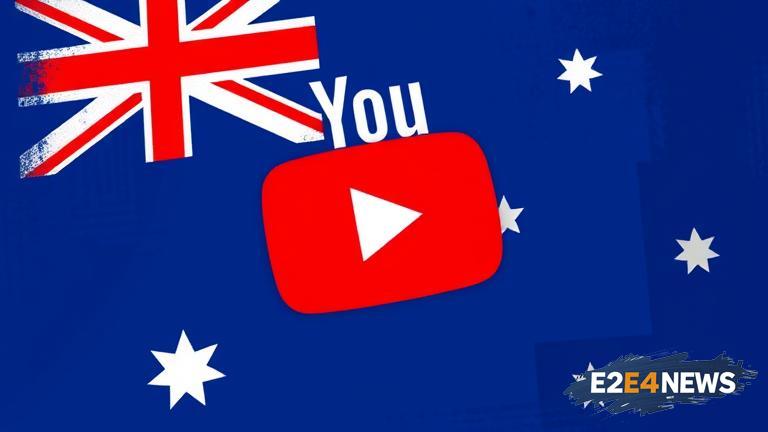The Australian government’s proposed social media ban has sparked a heated debate, with YouTube threatening to take legal action if forced to comply. The ban, aimed at curbing online harassment and hate speech, has raised concerns among tech giants and free speech advocates. YouTube, owned by Google, has expressed its opposition to the ban, citing concerns over censorship and the potential impact on its users. The company argues that the ban would unfairly target its platform and stifle free speech. The Australian government, however, maintains that the ban is necessary to protect its citizens from online harm. The proposed ban would require social media platforms to remove harmful content within a certain timeframe, or face penalties. YouTube has warned that it would not comply with the ban, and would instead take legal action to protect its rights. The company has argued that the ban is too broad and would unfairly target legitimate content. The Australian government has faced criticism from tech giants and free speech advocates, who argue that the ban would set a dangerous precedent for online censorship. The ban has also raised concerns among users, who fear that it would stifle free speech and limit their ability to express themselves online. YouTube has emphasized its commitment to removing harmful content from its platform, but argues that the ban would go too far. The company has pointed to its existing policies and procedures for removing harmful content, which it believes are effective in keeping its platform safe. The Australian government, however, has argued that more needs to be done to address the issue of online harm. The proposed ban has sparked a wider debate about the role of social media in society, and the need for greater regulation. While some argue that social media platforms have a responsibility to protect their users, others believe that regulation would stifle innovation and free speech. The issue has also raised questions about the impact of social media on mental health, with some arguing that it has a negative impact on users. YouTube has emphasized its commitment to promoting healthy online behaviors, and has introduced a number of features aimed at reducing the spread of harmful content. The company has also partnered with mental health organizations to provide support to users who may be struggling with online harassment. Despite these efforts, the proposed ban has sparked concerns among users, who fear that it would have a chilling effect on free speech. The Australian government has faced criticism for its handling of the issue, with some arguing that it has not done enough to consult with tech giants and free speech advocates. The proposed ban has also raised concerns about the potential impact on small businesses and creators, who rely on social media to reach their audiences. YouTube has warned that the ban would have a disproportionate impact on these groups, and has urged the government to reconsider its approach. The issue is likely to continue to be debated in the coming weeks and months, as the Australian government considers its next steps. The proposed ban has sparked a wider conversation about the need for greater regulation of social media, and the potential impact on free speech and online behaviors.
